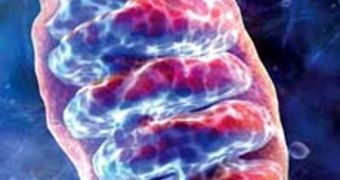Scientists at the University of California in Davis (UCD) demonstrate in a new study that children with autism are also highly likely to suffer from defects in their mitochondria, which are structures generally refer to as the “power plants” of the cell.
An important conclusion of the research is that the severity of the condition itself, as well as its continued development, are sustained by oxidative stress and other types of damage eating away at mitochondria functionality.
These cellular components are so critically important to the body that they contain their own set of genetic material, called mitochondrial DNA (mtDNA), which enables aerobic respiration.
One of the main customers the organelles serve is the brain, which consume the second-largest amount of energy in the human body after the heart.
As such, it stands to reason that not providing sufficient fuel for neurons to function properly may lead to impaired capabilities. It could be that autism is the physical manifestation of this neural “starvation.”
But eh UCD team says that autism is not the only brain disorder associated with reduced mitochondria functionality. It could be that this also plays a role in the development of Alzheimer’s, Parkinson’s, schizophrenia and bipolar disorder,” PsychCentral reports.
“Children with mitochondrial diseases may present exercise intolerance, seizures and cognitive decline, among other conditions,” explains UCD expert Cecilia Giulivi.
“Some will manifest disease symptoms and some will appear as sporadic cases. Many of these characteristics are shared by children with autism,” the scientist adds.
Giulivi, who is the lead author of the new study, holds an appointment as a professor in the UCD School of Veterinary Medicine (SVM) Department of Molecular Biosciences.
Details of the research effort are published in the current issue of the respected Journal of the American Medical Association (JAMA).
“It is remarkable that evidence of mitochondrial dysfunction and changes in mitochondrial DNA were detected in the blood of these young children with autism,” adds Geraldine Dawson.
“One of the challenges has been that it has been difficult to diagnose mitochondrial dysfunction because it usually requires a muscle biopsy,” she adds.
“If we could screen for these metabolic problems with a blood test, it would be a big step forward,” concludes the expert, who is the chief science officer of Autism Speaks, the organization that funded this research.

 14 DAY TRIAL //
14 DAY TRIAL //